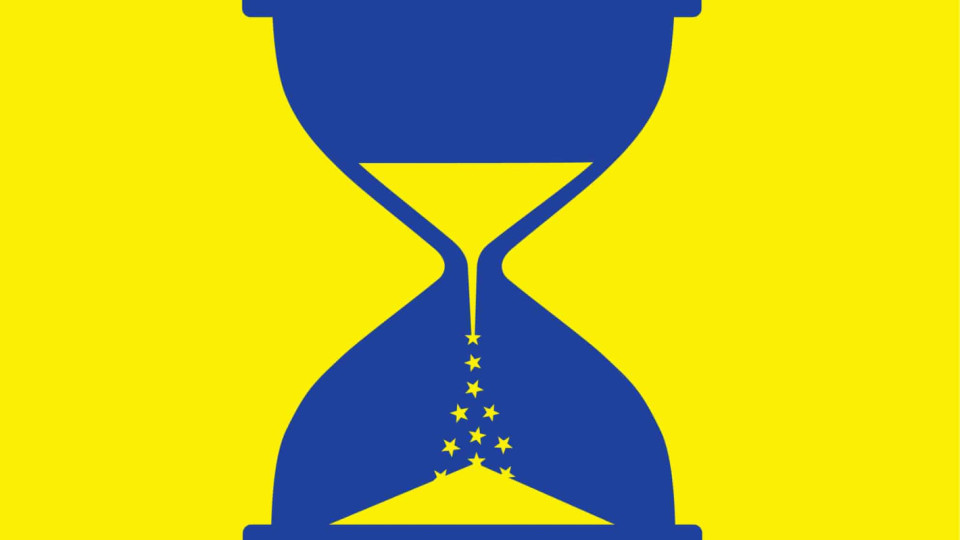
Brexit just got serious. If parliament can somehow take control, EU leaders must take pity and offer a long delay

When European leaders discuss Brexit on Thursday, they should have in mind a fundamental question: is the EU just a union of governments, or is it also a Europe of citizens, peoples, democracy and destiny? If it’s just the former, they should continue the current mainstream Brussels line of trying to help Theresa May to get her deal over the line, and the UK out of the European Union as soon as possible. If Europe is also the latter, as French president Emmanuel Macron has eloquently argued, then they must recognise that May’s government is the problem, not the solution, and give time for the citizens, peoples and democracy of Britain to work their way to a better place.
More than 16 million British citizens voted for Britain to remain in the EU in 2016. Were European citizenship personal and direct, rather than contingent upon being a citizen of a member state, the EU would have a clear responsibility towards us, the British Europeans. If we were a country, we would be the ninth largest in the EU, after the Netherlands and before Belgium. We are joined by some 3 million citizens of other EU countries who live in Britain. That makes 19 million.
Hundreds of thousands of us will be on the streets of London this Saturday, as some 700,000 of us were last October, demonstrating that we are not merely Europeans, but Europeans strongly in favour of the EU. Last autumn’s People’s Vote march was already the biggest pro-European demonstration in recent European history. Will European leaders simply ignore us?
Next to individual citizens there are the peoples of these islands. Britain is a nation comprised of three nations: England, Wales and Scotland, together with a part of a fourth, Ireland. The 27 other member states of the EU have been impressive in their solidarity with Ireland, against the unforgivable, post-imperial carelessness of English Brexiteers. But what about Scotland, with its 5.4 million people? Scotland voted by a majority of 62% to 38% to remain in the EU. Don’t the leaders of Slovakia and Slovenia, Latvia and Estonia, remember what it’s like to be a small country subordinated to a larger one?
Then there is democracy. One can understand why our fellow Europeans have reacted with disbelief and ridicule to the extraordinary operetta that the Westminster parliament has presented over recent months. While Donald Trump Jr snorts that British democracy is “all but dead’, what happens in Westminster shows the very opposite to be true – unlike what happens in the parliament building that architecturally most resembles it, on the banks of the Danube, in Budapest.
Some may laugh at the Commons Speaker invoking a procedural rule dating back to 1604, but it’s a reminder that since the 17th century the English form of revolution has been to assert the authority of parliament over an over-mighty executive – from Charles I to Theresa the Hapless. Last week, a motion for parliament to take control of the Brexit process lost by just two votes; another such motion is likely to succeed. Do EU leaders really want to spurn a democratic Britain while embracing an undemocratic Hungary?

Last but not least, there’s shared destiny. Macron’s compelling vision of a Europe that has sufficient power to defend our shared interests and values in an increasingly post-western world will be impossible to achieve if British hard, economic and soft power is set to work against, rather than with, the grain of Europe. And continental Europeans should have no illusions: such cross-Channel dissonance, not some harmonious strategic cooperation, will almost certainly be the consequence of Brexit.
What, then, should far-sighted European leaders do? They should give Britain an article 50 extension of up to one year, with the clear, stated purpose of finding a way forward that commands a majority in Westminster. In return, London should promise not to obstruct other developments in the EU. Crucially, the extension period could be terminated by mutual agreement at any point.
Contrary to first appearances, Donald Tusk’s statement today that the EU will only approve the short extension requested by May if and when she gets her deal through parliament, does not foreclose this possibility. The EU has already made its best offer on the withdrawal agreement and the Irish backstop. If, against the odds, her deal does get through in a third “meaningful vote” next week, only a short technical extension would be needed.
If, however, parliament uses the next few days to take back control and offer a clear way forward, then EU leaders would be incredibly shortsighted not to grant a longer extension. Were a series of “indicative votes” in the House of Commons to produce a clear cross-party majority for a softer Brexit, be it just a customs union or the more ambitious Norway-plus (single market membership plus a customs union), and if – a big if – May were to finally put country before party and accepts that cross-party majority view, then only changes to the political declaration would be needed, and Britain could leave by the end of June.
However, as the prime minister herself said in parliament quite recently, a three-month extension would simply take us to another cliff-edge. If, by the administrative deadline of 12 April, the British government has not set the wheels in motion for holding European elections in late May, then its continued membership after the beginning of July – when the new European parliament convenes – could threaten the functioning of the whole EU.
Some legal experts have pointed to ways in which the current British MEPs could have their terms extended for as long as Britain remains in article 50 status. In the past, leading figures in the EU have told me that if there was the political will to support this, a legal way could be found. That would help to keep the British debate focused on resolving the central issue. But the largely settled view of the EU now seems to be that Britain must hold European elections, or get out before the European parliament meets.
For the EU to end up agreeing a three-month extension next week would therefore virtually preclude the most promising way forward for Britain and Europe, which is that envisaged in the so-called Kyle-Wilson amendment, named after the two Labour MPs who proposed it. Parliament would vote for May’s deal, but only on condition that there is then a “confirmatory referendum” in which the British people would choose between that deal and remaining in the EU. To implement that second referendum properly – with European elections in Britain being a trial run at best, a rowdy distraction at worst – would require at least five months, taking us into the autumn. Some recent polling shows small but growing majorities both for holding a referendum and for remaining in the EU.
The path to that result is still narrow and uncertain, but it is one supported by many millions of British Europeans and EU citizens living in Britain – and it pays due respect to Scotland, a small but great European nation. Even a soft Brexit would be better than the half-baked, blindfold Brexit currently on offer, let alone a no-deal disaster. If European leaders believe in a Europe of citizens, peoples, democracy and shared destiny, they should give British Europeans this last chance.
The Guardian











Leave a comment